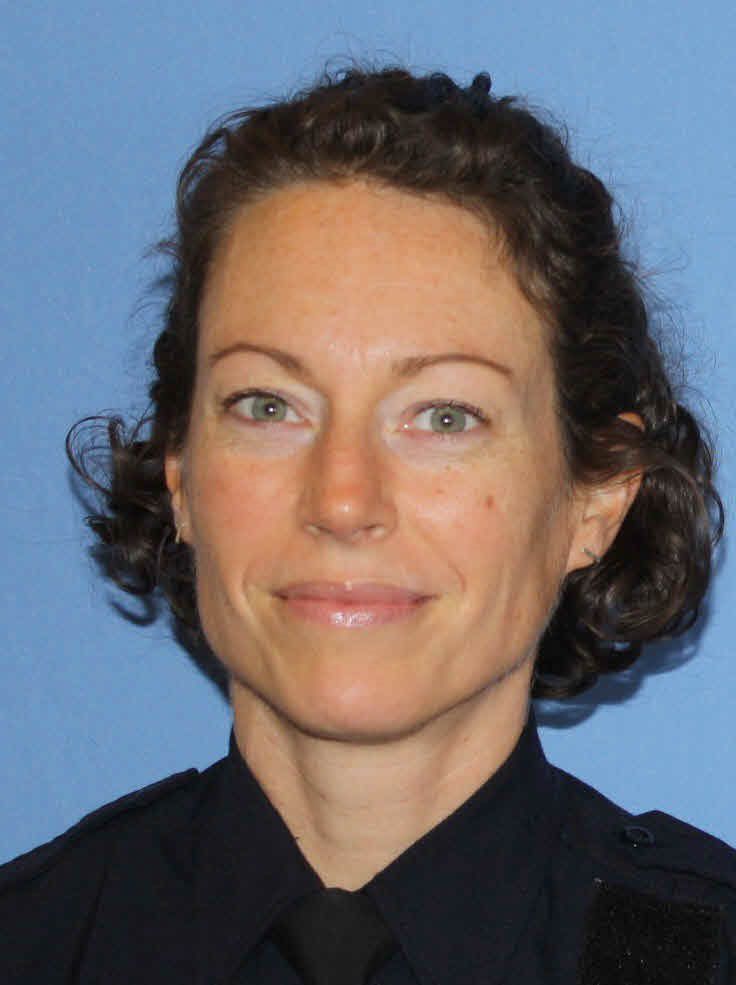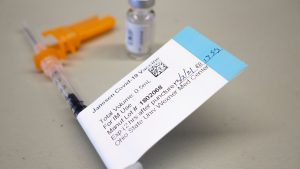CLEVELAND — Connor is Anna and Kevin McHugh’s first baby.
He was posterior, and McHugh’s labor was quick. The couple made it to the entrance of the ER at Cleveland Clinic Fairview Hospital just in time and doctors delivered him in the back of their car.
After his wild entrance to the world, McHugh said she knew she wanted to breastfeed.
“Kind of just like the natural choice. Obviously, if I could, if he latched and everything. But he latched right away when he was born. So, that was exciting,” she said. “They called him the ‘boob man’ when he was in the hospital.”
Even though Connor had no trouble latching, McHugh had some concerns.
“He was curling his top lip, so he had a shallow latch, not like a deep latch. So, he was just on the breast like a lot longer than you would expect his first few feedings. Obviously, it’s a learning process for both of us,” she said. “But, his first few feedings were like 45 minutes to an hour and I was like ‘OK, is this what I’m going to do all day every day?’”
When her son was three-and-a-half weeks old, a lactation consultant told her about the new Breastfeeding Medicine Clinic and Center at the Cleveland Clinic. She said the team there helped right away.
“Now, we just have to flip his lip up every time he latched, and he’s gotten like so much stronger and his feedings go really smooth and he’s content and happy. So we’re very happy,” said McHugh.
The Breastfeeding Medicine Clinic and Center opened in June, right across from Hillcrest Hospital in Mayfield Heights. It recently expanded to a location in Lakewood, too.
The clinic helps moms with various breastfeeding-related issues such as nipple pain, low milk production or oversupply, how to properly pump and transition back to work.
McHugh said that kind of support makes a big difference.
“The clinic’s new, but also breastfeeding is new. So even though, you know, our bodies are designed to do it, the baby’s learning how to eat, suck, you know, do the whole thing,” she said. “We’re also learning how to breastfeed.”
McHugh said she breast-feeds six to seven times a day. She pumps right before she goes to bed and in the middle of the night.
“I will pump at 3 a.m. because your boobs are most awake at 3 a.m. and that’s when they know how to produce,” she said, while holding Connor. “So can’t miss that pump, right? You’re sound asleep and I’m pumping for you.”
New guidance from the American Academy of Pediatrics recommends pediatricians support those who breastfeed their infant through age two, after solid foods are introduced.
Dr. Heidi Szugye is the Medical Director of the Breastfeeding Medicine Clinic and Center at the Cleveland Clinic and said this recommendation comes after continued evidence of the benefits of breastfeeding for both mom and baby after that first year of life.
The AAP policy reads in part: “Research has shown that breastfeeding is linked to decreased rates of lower respiratory tract infections, severe diarrhea, ear infections and obesity. Breastfeeding is associated with lower risk of sudden infant death syndrome, as well as other protective effects.”
But Szugye said there’s much more in the policy update beyond that.
One of the other key points is the continued disparities in breastfeeding rates and outcomes for minority and impoverished women and the need to provide more resources to those populations. The policy also talks a lot about the need for health care systems and workplaces to better support breastfeeding moms.
“I think there’s been a lot of sort of negative publicity around this. This recommendation, really being sort of a burden to moms and all on the shoulders of moms and especially in light of the formula shortages that we’re experiencing right now,” said Szugye. “But, if you really dive deep into the policy statement, there’s much, much more to it than that recommendation. And a call to make sure that we’re providing support for moms so that they can reach these breastfeeding goals.”
McHugh said she personally plans to breastfeed as long as she can.
“Even if he’s like one-and-a-half and I’m just pumping and he’s taking it in a bottle. But you know, they call it liquid gold,” McHugh said. “And they obviously call it that for a reason because your body is making exactly what your baby needs based off of their saliva. So, I think if I can do it, I will try to do it for two years.”
The new breastfeeding clinic has helped McHugh feel prepared for the journey ahead.
While breastfeeding is the right choice for her, she urges every parent to do what’s right for them.
“If you navigate it, what’s best for you, your life, your baby, your family, your situation, your unit – everyone’s going to be happier all around,” she said.
Szugye said last year the Cleveland Clinic delivered more than 12,000 babies across all northeast Ohio facilities and there’s been an increased demand from patients and physicians to offer more support and education.
Since June, the Breastfeeding Medicine Clinic and Center has worked with 200 moms and babies.




